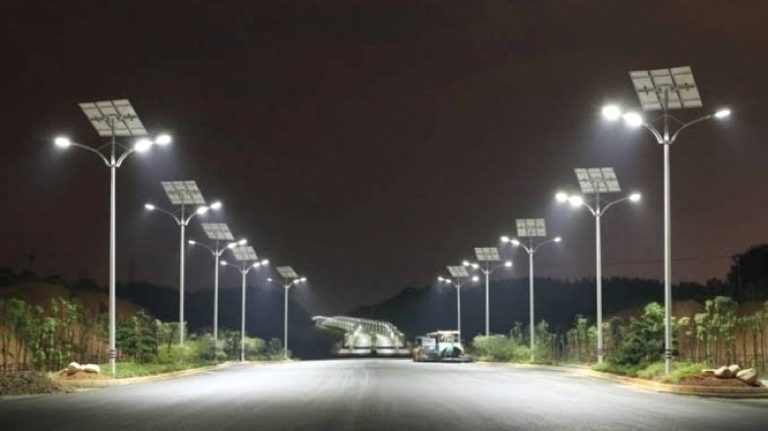The institutions of state responsible for ensuring that streetlights are up and functioning have performed poorly as most roads in the country lack functioning streetlights and have remained so for too long a time; sometimes several years.
This website wonders if the heads of those institutions have any conscience at all when they receive notification that their salaries have hit their bank accounts at the end of the month.
What exactly are they being paid for? Are they being paid to stand akimbo and probably laugh over complaints from concerned Ghanaians and residents who have experienced the dangers of the lack of functioning streetlights?
Discussing the sorry subject that almost all major streets in Accra, Tema, Kasoa not having functioning streetlights has become a cliché and no one seems to care about it despite the clear dangers and risks associated with it. The sad story is no different in other parts of the country and driving at night has become a macabre dance for motorists.
Functioning streetlights are not for aesthetics. They are a major requirement in the engineering of our roads and their absence poses a grave and continuous danger. Their continuous absence should not be tolerated.
Very strangely, the absence of functioning streetlights does not even seem to be an issue of concern for the powers that be. And not even the opposition party.
Obviously they are not concerned that the absence of functioning lights jeopardizes the safety of motorists, pedestrians, and cyclists.
They do not care that studies have consistently demonstrated a strong correlation between malfunctioning streetlights and increased road traffic crashes, injuries, and fatalities.
The issue of road crashes and lack of visibility for both motorists and pedestrians is not the only concern here because the dark streets create an atmosphere of grave insecurity.
Criminals love to operate in the dark and in most reported cases, incidents of car-jacking, theft, assault, violent attacks and such have mostly happened in dark streets and corners. Many persons who want to go out at night do not feel safe and this affects the economic activities of night life in many parts of the city.
Apart from criminals, it is difficult to mention any other group of persons who benefit from the dark streets of Accra.
The Ministry of National Security has been consistent in its campaign of ‘See Something, Say Something’ but how can something be seen in the dark for it to even be said?
Perhaps, as a security safety measure, the onus of ensuring streetlights and up and functioning should be tasked on the Ministry of National Security considering the effects of having dark streets. At the end of the day, the institutions in charge of lightening up the streets at night have all failed and continue to fail at the expense of the tax payer.
In addition to the fact that the institutions have failed, there is also the challenge of the negative attitude of a section of wrong-thinkers who move round destroying the lights to steal some components of it.
There are places in Accra where installed streetlights have suddenly vanished from an entire stretch of a road that covers several kilometers.
These miscreants are having a walk in the park stealing our streetlights because no one seems to bother investigating their operations and whereabouts to smoke them out and deal with them according to law.
Sad as the situation is, it is as though there is some unwritten mutual agreement among city authorities that the streets should remain dark while they shift blame over who should be held responsible for the shame.

